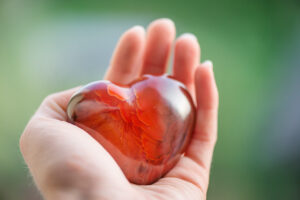
Love is arguably the highest and the most powerful human emotion. It is often the force that binds one or more individuals together in a family, within a religion or a particular cause. It is the emotion we all thirst for in our relationships with others. It is that quality we usually reserve in higher proportions for those who are special and important to us, i.e.: spouse, children, parents, a friend, etc … It is such a precious and potent force which when truly present in our lives offers us freedom of expression, energy, purpose, excitement, laughter and much more.
Why is it that to love others is deemed socially acceptable and yet to love ourselves is often described as vain, conceited or arrogant? Surely if it is considered right to give love in the relationships we have with others, it is equally right to give love to ourselves? Why do we expect that need we all have to be loved to always be provided by someone else? Is it improper or unreasonable for us to give ourselves some of the love we need?… The answer is no, by understanding the importance and value of self-love we are able to become masters of our destiny.
We all have a right to love and in an ideal world that right to love would be freely given and exchanged in all human interactions, sadly this is not always the case. However this is not our main concern at this stage, the right to love that we are concerned with is the right we have to love ourselves. It is not vain, conceited or arrogant to give love to oneself in a balanced manner, in fact it is essential for healthy emotional and psychological growth. Without the ingredient of self-love there is always the feeling “something” is missing from our lives and so we go in search of that “something” to try and fill the hole inside us, not realising only we can fill that hole for ourselves, there is nothing external that can fully bridge that hole inside.
Self-love exists when we have a real understanding and appreciation of our uniquiness, beauty and potential. Self-love allows us to be accepted by ourselves just the way we are with no conditions. It gives us permission to make mistakes knowing that it’s ok and that out of our experiences, whatever their complexion, will come growth. Self-love is a compassionate, understanding, forgiving companion that in all situations is “there for us”, it never abandons us. It is there applauding, cheering, offering support whatever situation we find ourselves in, but until we realise this we will spend very little time and energy cultivating self-love in our lives.
Self-love is the most crucial ingredient within the whole concept of love. It is the foundation on which the love we give to others stands. When it is fragile or not present the love we offer to others becomes conditional, which means: we love others most when they conform to our desires, needs and expectations, and when they do not it is very difficult to love them in the same way. If we look into our hearts we can see that conditional love is rampant in our lives and in the lives of those around us and the key reason for this is we do not love ourselves unconditionally because most of us do not know how to. It is a skill and an art we have never been taught, and until we do truly love ourselves we cannot give unconditionally to others. How can we give what we haven’t got?
Self-love is about the renunciation of our “acquired self” (what we have become) and the aspiring for a relationship with our “authentic self” (what we really are). Only through increasing our knowledge and awareness of the problems that negatively affect the human psyche are we able to develop an understanding of the solutions. So let us begin the excursion towards the truth about ourselves.
